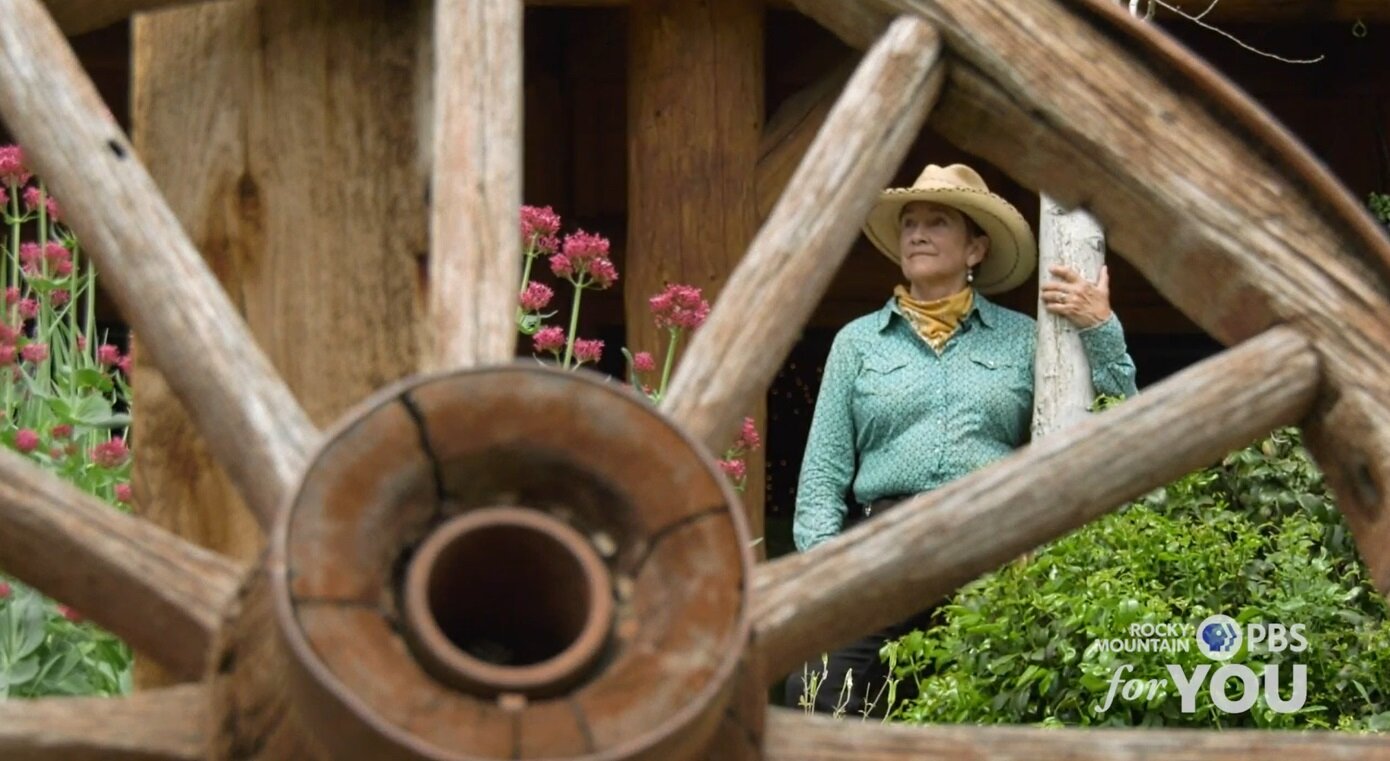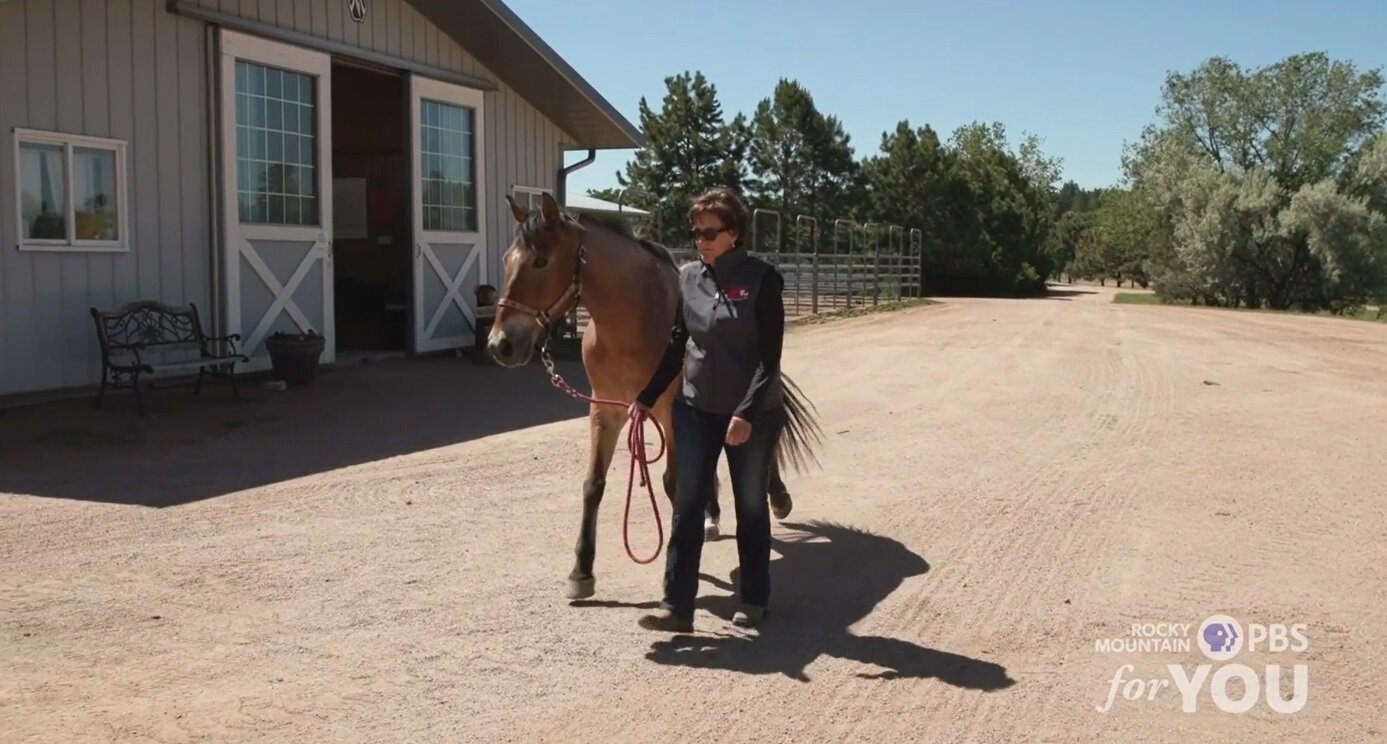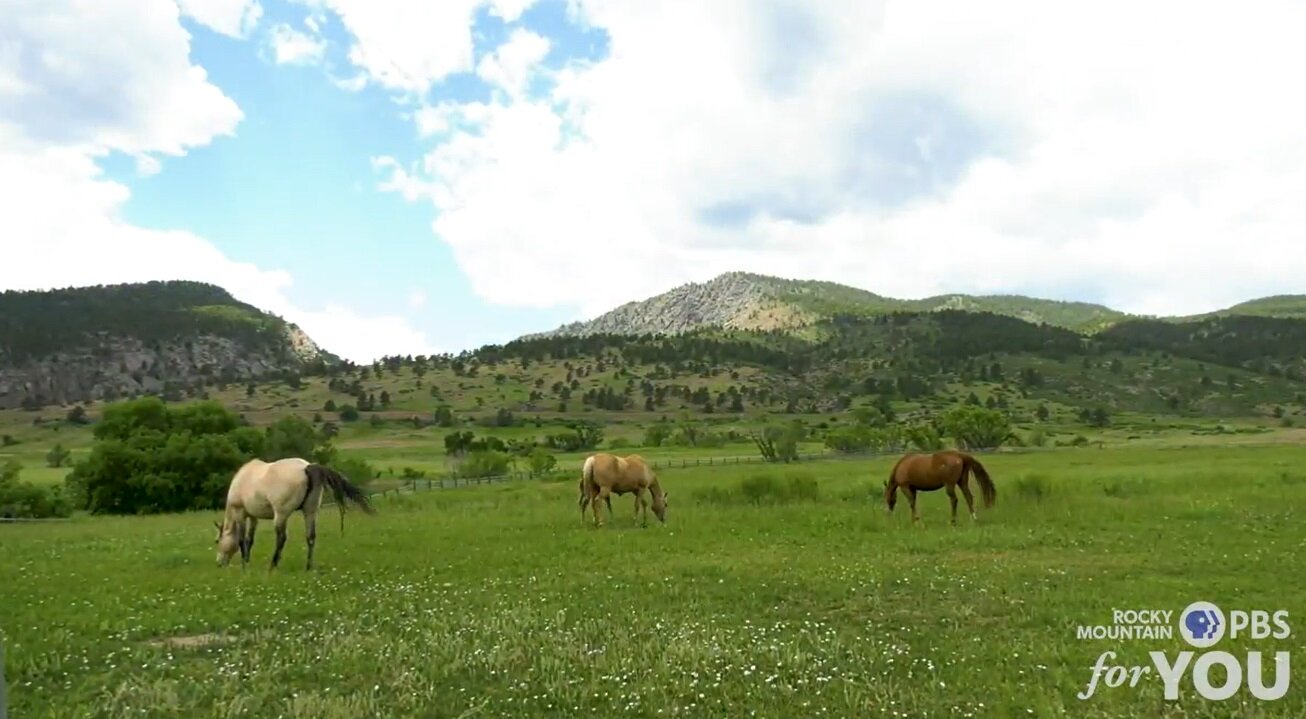As pandemic costs dude ranches visitors, horse rescue offers help

It’s difficult to find any corner of Colorado untouched by the COVID-19 pandemic, or an industry that isn’t suffering from the economic fallout. The state’s dude and guest ranches are among the businesses taking a hit.
“Everybody’s world has been turned upside down and we’re no exception,” said Sylvan Dale Guest Ranch owner Susan Jessup. “For this year, we have to accept the fact that we’ll probably be at least 50% down in our numbers and that’s going to make it difficult.”
The Sylvan Dale Guest Ranch in Loveland is normally open year-round, but Jessup said the ranch lost all of their business in March, April and May due to the COVID-19 shutdown. Boosted by federal paycheck protection funds, the ranch reopened for the summer on June 7. But Jessup said some guests who planned visits have cancelled because they don’t want to fly.
“[The ranch] is probably one of the safest places you can be on the planet right now. We’re outside, we do activities that are outdoors,” Jessup said. “It’s a great place for people to come, but a lot of people are not feeling comfortable with that now.”

“Business has certainly been affected with the virus,” Sylvan Dale’s head riding instructor Karen Burbank said. “That is a concern for the horse industry, worried about being able to care for all of the animals … At this point in time, we are sitting okay with our horse herd, but there is always the concern of what if we have to rehome our horses? We want to make sure that they end up in the right hands.”
Sylvan Dale partners with the Drifter’s Hearts of Hope horse rescue, which created the Annie Project three years ago specifically to help dude ranches and guest ranches around the state find new homes for their retired horses.
“I feel like with the current pandemic, we're going to see nothing but probably an increase in the need to rescue horses,” said Rachelle Nye, a member of the board of directors for Drifter’s Hearts of Hope.
Horse ownership is expensive and the economic downturn means more people are turning to the rescue for help. Drifter’s Hearts of Hope joined with other organizations and created a hay bank to help private horse owners keep their animals fed during tough times. And the rescue is anticipating there could be an increase in need from their ranch partners too.
“Tourism is down. So those horses that would normally have a very busy summer, aren't going to have a busy summer. And then as tourism is down, it's harder to care for horses,” Nye said.

The Annie Project has partnered with 13 Colorado dude ranches over the past three years. Their goal is to keep the well-trained ranch horses from ending up at livestock auctions, where they may ultimately be purchased and sold for slaughter outside of the United States.
“We're seeing an increase of dude ranch horses that are showing up at the auction, they are not Annie Project partners,” Nye said. “My hope for those horses is because they are so trained and well broke that it might be people like me going to buy them instead of somebody that doesn't have the horse's best interests in mind.”
Nye said her family has adopted three retired ranch horses.
“They’ve been the best thing that has happened to our family because they have taught us so much,” she said. “One of them in particular… she is the safest, most bomb-proof horse for a kid to have. She is so tolerable, so kind, so gentle.”
Sylvan Dale Guest Ranch has a few horses on the waiting list to be rehomed by the Annie Project.
“[The horses] work very hard for us and when it’s time for them to retire and have an easy last few years, we want to make sure they’re in the right hands,” Burbank said.

Just as the ranch’s staff is determined to do right by its horses, they’re also determined to keep the ranch open through the downturn. Jessup said her parents bought the ranch in 1946 and since then it has survived two floods. She expects it will endure this latest challenge too.
“Our expectation is that we're going to make it. We're going to be here. We've been through a lot of things and we're pretty resilient,” Jessup said. “We need to make this beautiful place and the kind of vacation that is here available for people, because this is what people need.”
